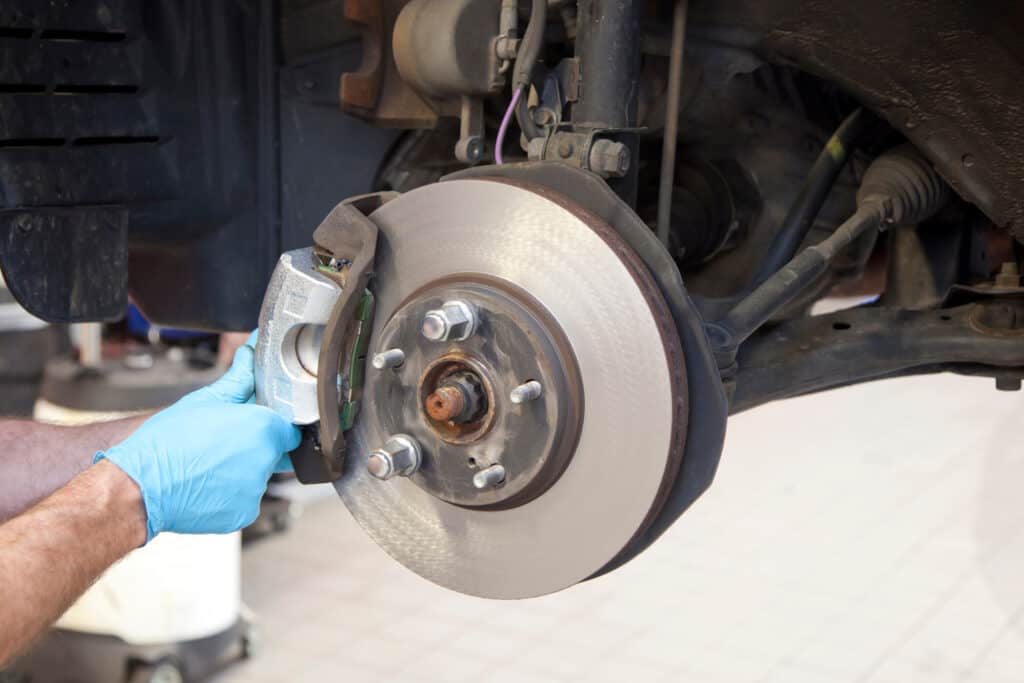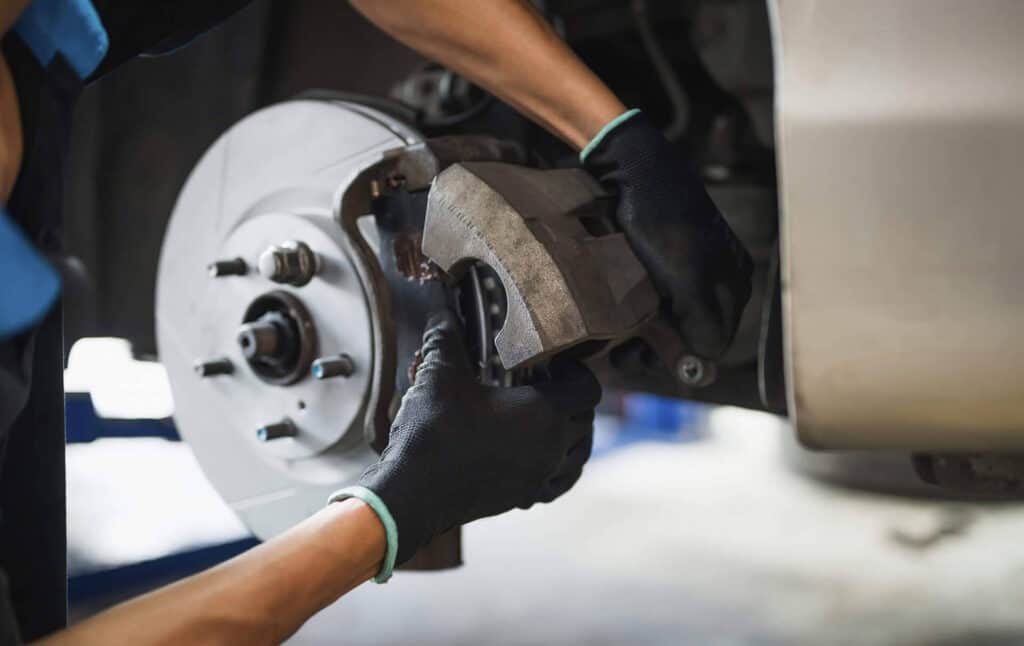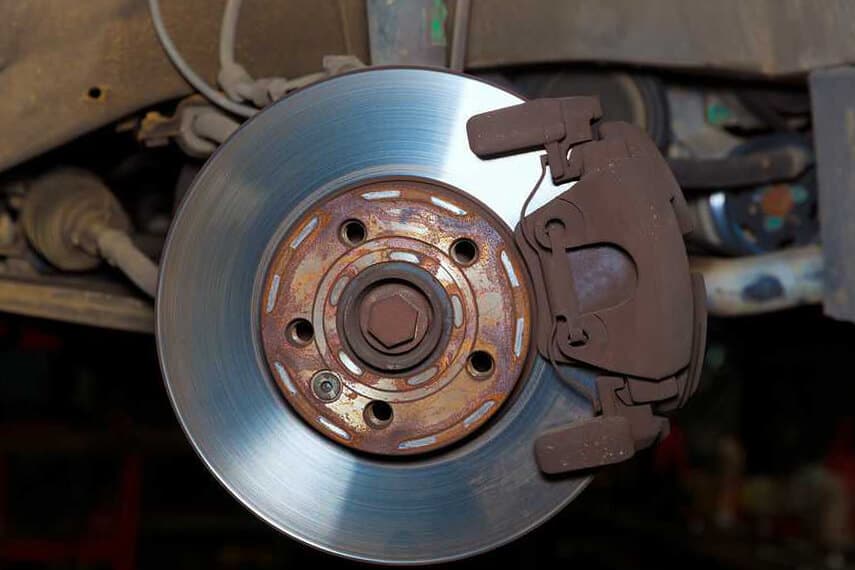Brake Calipers Demystified: Understanding Their Role in Your Vehicle’s Braking System
Brake calipers play a crucial role in the functionality of your vehicle’s braking system. The caliper is a housing for the brake pads and pistons; its job is to slow the car’s wheels by creating friction with the brake rotors. The caliper operates in high-stress conditions and, as such, is prone to wear and tear over time. Understanding this essential component can help you maintain it and recognize potential issues early.

Preventive Care: Daily Habits to Prolong the Life of Your Brake Calipers
Good Driving Habits: One of the first steps towards extending the lifespan of your brake calipers lies in the adoption of good driving habits. Avoiding sudden, abrupt stops whenever possible helps to reduce the strain exerted on the brake calipers. Also, maintaining moderate speeds reduces the demand on your braking system and, by extension, the brake calipers.
Vehicle Loading: Another important consideration is the weight of your vehicle. Overloading your vehicle adds to the stress on the brake calipers when the brakes are applied. Therefore, it’s essential to manage the weight your vehicle carries to reduce the burden on the brake calipers.
Regular Cleaning: Brake components are susceptible to dust and debris accumulation, which can hinder their proper functioning. By regularly cleaning your brake components, you can prevent such build-ups, thus avoiding potential caliper malfunctions. This can be accomplished using a brake cleaner that’s designed to remove grease, oil, and dust from brake parts.
Routine Brake Fluid Checks: Brake fluid plays a critical role in ensuring the optimal functioning of the brake calipers. It’s vital to conduct periodic checks of brake fluid levels to ensure there’s adequate lubrication for the smooth operation of the calipers. Additionally, keep an eye out for signs of brake fluid leakage, which could point to issues with the brake calipers or other components of the braking system.
Red Flags: Recognizing the Early Warning Signs of Brake Caliper Issues
Pulling to One Side While Braking: One of the initial indicators of a potential brake caliper issue is the vehicle pulling to one side when the brakes are applied. This can be attributed to a sticking brake caliper, which causes uneven braking pressure. Any such anomaly in the behavior of your vehicle should prompt a thorough inspection of the brake system.
Uneven Brake Pad Wear: Uneven brake pad wear is another red flag signaling brake caliper problems. If one of your brake pads wears down more rapidly than the others, it could be due to a failing brake caliper, as it may not be releasing properly after you’ve taken your foot off the brake pedal. Regular inspections of brake pads can help detect uneven wear early on.
Leakage of Brake Fluid: Brake calipers house the piston that applies pressure to the brake pad. This piston is sealed into the caliper using a rubber dust boot and seal, which can degrade over time, leading to brake fluid leakage. If you notice a clear or yellowish fluid near your tires or on your brake components, it may be a sign that your caliper seals have failed.
Sensation of Vehicle Dragging: If your vehicle feels like it’s dragging or doesn’t glide freely, a stuck brake caliper could be the cause. The caliper might not be releasing properly after braking, which can lead to a sensation of the vehicle being held back. This not only affects your vehicle’s performance but can also cause premature wear of brake components and negatively impact fuel efficiency. If your vehicle exhibits such a symptom, it’s crucial to seek professional help immediately.

DIY Maintenance for Keeping Your Brake Calipers in Top Shape
Regular Cleaning: Regularly cleaning your brake calipers is an important step in DIY maintenance. Over time, brake dust, road salt, and other debris can accumulate on the calipers, leading to corrosion and affecting their performance. By using a non-corrosive cleaning solution and a stiff brush, you can gently clean the surface of the calipers to remove this build-up. Be sure to avoid getting any cleaning solution on the brake pads or rotors.
Periodic Visual Inspections: Carrying out periodic visual inspections of your brake calipers can help detect signs of wear and tear or corrosion. Look out for any visible leaks, which could be a sign of a failing seal, or any discoloration or cracking on the caliper body itself. Remember, early detection is key to preventing minor issues from escalating into major, costly repairs.
Lubricating the Caliper Pins: Another critical part of brake caliper maintenance involves lubricating the caliper pins. These pins allow the caliper to slide back and forth smoothly when the brakes are applied and released. Over time, these pins can become dry or corroded, leading to a stuck caliper. Using a high-quality silicone paste, you can lubricate these pins to ensure smooth operation.
Refer to Your Vehicle’s Service Manual: When it comes to DIY maintenance, your vehicle’s service manual is your best friend. It provides specific instructions for maintaining and troubleshooting various components of your vehicle, including the brake calipers. Always refer to this manual for accurate information about maintenance schedules, procedures, and safety precautions.
Situations That Require a Mechanic’s Expertise for Brake Caliper Maintenance
While some aspects of brake caliper maintenance can be performed by a knowledgeable vehicle owner, there are situations where the expertise of a professional mechanic is necessary. Understanding when to seek professional help can ensure the safety and longevity of your vehicle’s braking system.
One such situation is when the brake caliper has seized. A seized caliper is often the result of a stuck piston due to rust or dirt buildup, and it can significantly impair your vehicle’s braking performance. While cleaning the caliper and piston can sometimes resolve the issue, in severe cases, the caliper may need to be replaced. This is a complex task that requires specific tools and knowledge, making it a job best left to a professional.
Another situation that requires a mechanic’s expertise is when there is a leak in the brake fluid. Leaking brake fluid can lead to a decrease in hydraulic pressure, impairing the brake caliper’s ability to apply pressure to the brake pads. Identifying the source of the leak and repairing it can be a complex task, and incorrect repairs can lead to further issues down the line.
Finally, if you notice uneven wear on your brake pads, it’s important to have your brake calipers inspected by a professional. Uneven wear can be a sign of a caliper issue, but it can also indicate a problem with the brake pads themselves or other components of the braking system. A professional mechanic can perform a comprehensive inspection to identify the root cause of the issue and recommend the appropriate repairs.

Navigating the Financial Aspects of Brake Caliper Repair and Maintenance
Maintaining the health of your vehicle’s braking system is crucial for safety, but it can also have financial implications. Understanding the costs associated with brake caliper repair and maintenance can help you plan and budget effectively.
The cost of brake caliper repair or replacement can vary widely depending on several factors. These include the make and model of your vehicle, the type of caliper, and the extent of the damage or wear. On average, you can expect to pay anywhere from $200 to $600 per caliper for a professional repair or replacement. This includes the cost of the parts and the labor.
Preventive maintenance, such as regular cleaning and lubrication, can help extend the life of your brake calipers and potentially save you money in the long run. While there are costs associated with maintenance, they are typically much lower than the cost of repairing or replacing a failed caliper. Regular maintenance can also help prevent more serious issues that could lead to more costly repairs.
It’s also important to consider the potential costs of neglecting brake caliper maintenance. A failed brake caliper can lead to other issues with your braking system, such as damaged rotors or worn brake pads. These issues can be costly to repair and can also impact your vehicle’s safety and performance.
Conclusion
Knowledge about your vehicle’s brake calipers and their maintenance can go a long way in ensuring the longevity of your braking system and your safety on the road. Regular maintenance, early warning sign recognition, and knowing when to seek professional help are all crucial components of effective brake caliper care. Remember, investing time and resources in brake maintenance can save you from more expensive repairs and potential safety hazards in the future.
